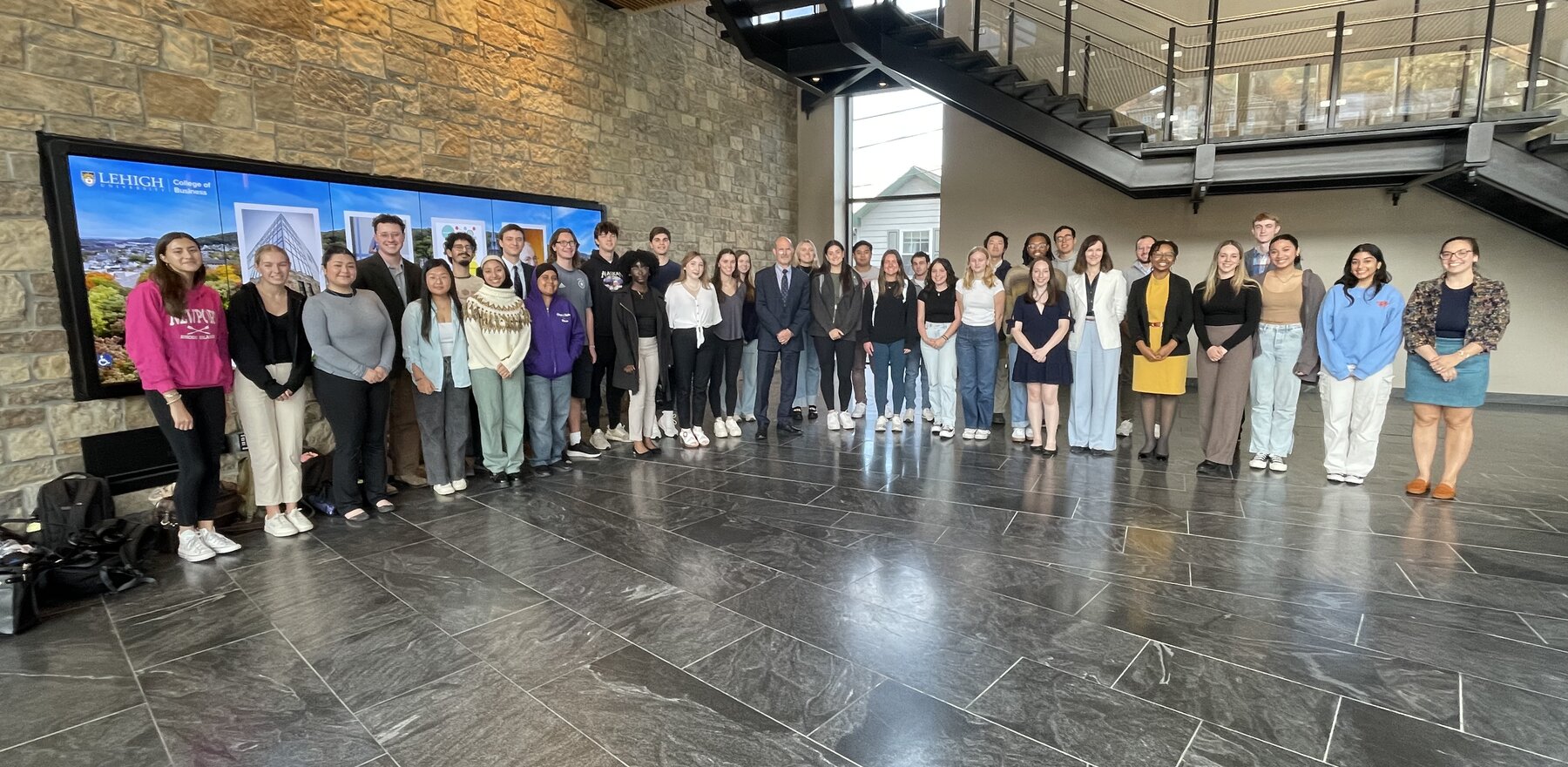Students from the College of Health (COH) and across campus recently filled a lecture hall for a discussion with Werner Obermeyer, the Director of the World Health Organization (WHO) office at the United Nations (UN) headquarters in New York City. His office represents WHO within the UN system, working to place global health at the forefront of the world’s largest stage. Obermeyer visited Lehigh for a day full of discussions with students and faculty, a tour of Asa Packer campus, a press conference, and more. The main event of the day was his presentation to COH and the campus community, at which he fielded questions from an eager audience.
Dr. Krista Liguori, a community and population health professor, facilitated Obermeyer’s visit and introduced him by outlining his acts of improving global health. “We are honored to learn about Mr. Obermeyer’s vast expertise and insights,” she said after nearly losing her breath from listing his accomplishments in health diplomacy. Obermeyer began by cracking a lighthearted joke, but quickly arrived at the most pressing world health issues and how WHO responds to them. “More than half the world’s people do not have access to essential health services,” he said as he described WHO’s purpose. “We believe in delivering health to the people.”
WHO aims to add one billion people to those who have universal health coverage, are protected in health emergencies, and are healthy overall. “Health is a precondition outcome indicator of sustainable development,” said Obermeyer. The audience listened intently while the leader in global health policy elaborated on issues like ebola, malaria, antimicrobial resistance, vaccine production, universal health care, and more. The floor then opened for questions from opportunistic listeners who were curious about his perspective.
Before the presentation, Obermeyer sat down for a private lunch and conversation with select students and faculty, mostly from COH. Here too, Lehigh attendees had the chance to ask the WHO director questions, and he responded authentically to each. Obermeyer said he enjoyed hearing what topics interested Lehigh students. He said, “What I am especially grateful for is that every single topic that [they] wanted to discuss corresponds to the priorities of what our office in New York is.”
He advocated for youth awareness of and interaction with WHO and feels that visits to university campuses are essential to WHO’s role. He said, “Universities actually have a tremendous advantage and a key role to play…If you don’t teach health diplomacy, you will never be able to navigate a pandemic.” Earlier in the day, COH faculty—including Dean Beth Dolan—met in private with Obermeyer to discuss further collaboration between Lehigh and WHO. “I think it’s really nice to be able to engage with people that are open-minded…keen to learn…you don’t always find that when you’re in the building with the diplomats.” Obermeyer hopes to see an increasing role played by Lehigh in WHO’s goals.
Dr. Ligouri was also present at the meeting and thought that the day was hugely successful. She said, “It shows [students] how important some of their classes are to what they might be doing in their career.” She said, “This is [College of Health’s] opportunity to embed these international experiences into a curriculum as it develops.” She has high expectations for the newly established COH and sees future collaboration with WHO as necessary in its growth.
